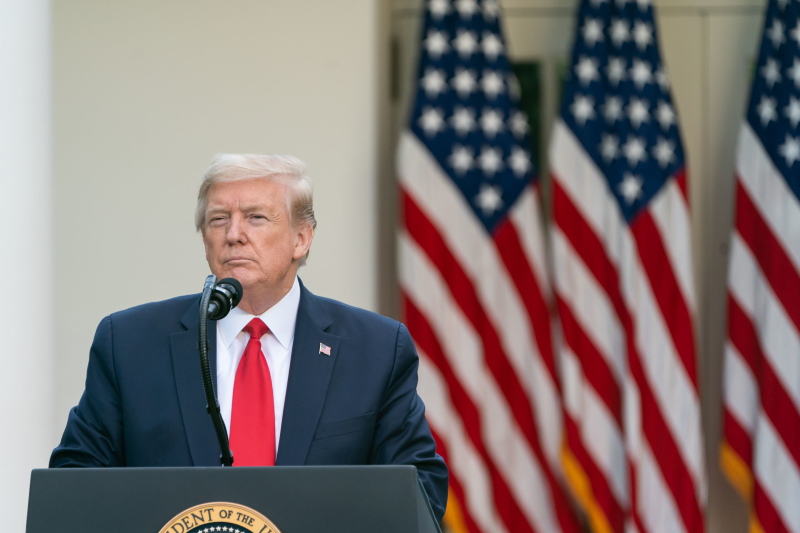FDA gives COVID-19 vaccine ‘advice’ after White House blocks guidance

The FDA may have been blocked from issuing stricter guidelines for emergency approval of COVID-19 vaccines by the Trump administration, but it has still managed to make its new approach public.
The regulator published “advice” to vaccine developers as part of documentation prepared for a vaccine advisory panel scheduled to convene later this month.
The five-page document sets out the information the FDA wants to see on safety and effectiveness and chemistry manufacturing and controls (CMC), and represents a tightening of the criteria for an emergency-use authorisation (EUA).
For example, the agency wants to see median follow-up duration of at least two months after completion of the full vaccination regimen in phase 3 studies – which would make it almost impossible for a shot to get the green light before the US election given that the front-runner jabs require two doses given at least 3-4 weeks apart.
The Trump Administration blocked the FDA from introducing new guidelines because they would set back the timeline for a COVID-19 green light by several weeks, scuppering the President’s plans to get a shot available before Americans go to the polls on 3 November.
Trump has also accused the FDA of succumbing to political pressure to delay approval of a vaccine, which the agency denies, and says industry had objected to the tougher standards. That prompted this response from former FDA Commissioner Scott Gottlieb:
[embed]https://twitter.com/ScottGottliebMD/status/1313279360900763653[/embed]
Consumer group Public Citizen meanwhile said today that the suppression of the FDA guidelines “represents the latest but most dangerous politicisation of the US public health response to the catastrophic pandemic.”
There has been speculation for some weeks that the Trump administration could try to authorise a vaccine without oversight from the FDA, and the agency’s decision to set out its criteria publicly suggests it is resisting any such move.
Trump has previously said that a vaccine may be available this month, and the administration has pledged to provide tens of millions of doses before the end of the year.
Michael Carome, director of Public Citizen’s Health Research Group, said that the interference from the White House is an “appalling action that will only feed public distrust in any future COVID-19 vaccine marketed under an EUA, fostering vaccine hesitancy and prolonging the pandemic.”
Industry is also concerned. Just last week, the BIO trade organisation sent an open letter to Health & Human Services Secretary Alex Azar asking that all new guidance developed by the FDA concerning EUA for vaccines to prevent the spread of COVID-19 be released.
“The…guidance would provide scientists and researchers greater regulatory clarity and strengthen public confidence in any future vaccine that may be authorised or approved,” said the letter, signed by BIO chief executive Michelle McMurry-Heath.
The current FDA Commissioner Stephen Hahn has previously insisted that the agency will not be swayed by political pressure during presidential election campaigning.
The FDA guidelines reportedly also envisage that an independent advisory committee should be convened to go over the data before it can consider EUA. With the election now less than a month away, the timeline for setting up and running an advisory committee would also make it highly unlikely that a vaccine could be available before then.
Among the leading vaccines, Pfizer/BioNTech’s RNA-based candidate looks like it is the only one with a chance of seeking an EUA ahead of the election. Moderna has said it doesn’t expect results with its RNA shot until later that month, while AstraZeneca’s adenoviral-based vaccine is still on clinical hold in the US.
The latest twist in the coronavirus vaccine story comes during another politically fractious week in the coronavirus fight, with Trump now back at the White House after contracting COVID-19.
He immediately courted controversy by downplaying the seriousness of the virus, removing his face mask while posing for pictures despite still being infectious, and claiming that vaccines are “coming momentarily.”
Meanwhile, Facebook has deleted a post in which Trump had claimed COVID-19 was "less lethal" than the flu, placing it behind a warning about "spreading misleading and potentially harmful information."











